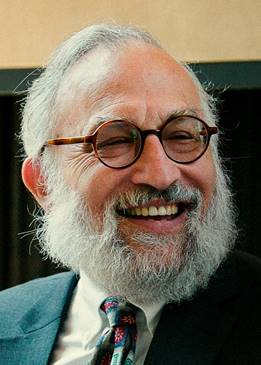Most significant about Pittsburgh, as well as the mass killings in a Black church several years ago, is the massive outpouring of support from allies. We should continue to cultivate alliances with people with whom we share values.
Growing up in a tight-knit Jewish community in a town where Jews were a welcome and respected, if tiny, minority, I felt completely safe as a Jewish American. The minor brushes I had with anti-Semitism were easy to write off as the belligerence of a non-influential lunatic fringe. In recent years, we have seen the growth of anti-Semitism in Europe, with significant violence against Jews from France to Germany and Belgium to Sweden. But I still did not imagine that we would see substantial anti-Semitic violence in the United States. That faith in America ended in Pittsburgh. Many of us suddenly feel vulnerable. Given our collective memory of previous traumas, this has been an unnerving experience for American Jews.
The shootings at the Tree of Life Synagogue in Pittsburgh included death and wounding in the Reconstructionist Dor Hadash congregation that meets in that building. I have spoken there a number of times over the years and knew Dr. Jerry Rabinowitz, the doctor who died; he was a wonderful man. Our hearts go out to all those who were affected by the tragedy there. What happened in Pittsburgh was shocking, and for many Jews, it felt deeply personal. For many American Jews, the Pittsburgh shooting shattered their confidence in the safety of American pluralism and diversity.
The divisive rhetoric flowing from the White House that equates people of color, immigrants, and other religious and ethnic minorities, including Jews, as the enemies of white patriarchal nationalism in America plays a major role in the current polarization in this country and in the empowerment of violence from the extreme right. The 11 deaths in Pittsburgh are an indirect result of the rhetoric that has empowered right-wing fanatics and emotionally unbalanced extremists. Nativist beliefs see the danger in this country as flowing from people of color and from immigrants. But the bombings and shootings in recent decades have come from white people influenced by the extreme right. We are being encouraged to look for danger in the wrong location.
What ultimately was most significant for me about the Tree of Life incident and the killing in an African-American church three years ago was not who did the shooting. What made both incidents different from most other times and places was the spontaneous outpouring of support for the black and Jewish communities from across America. In the days and weeks following, the reactions were amazing. The size of rallies and vigils. The outpouring of funds. The attendance at synagogues. The protective circles outside them.
My German Jewish father and grandfathers were taken to Dachau after Kristallnacht in Germany; there was virtually no resistance from the non-Jewish community. Here in America, the Jewish community has built bridges with Christians and Muslims, civil-rights activists and those working for deeper social change. And we have heard from our allies with unprecedented energy. We collectively represent the best legacy of America.
Of course, we need to fight the scourge of rhetoric that exemplifies lashon hara, “damaging speech.” And we need to fight politicians who seek to stir divisions among us, but we need also to recognize that we are surrounded by friends and allies who share our commitment to freedom of religion, freedom from want and freedom from oppression. We need to keep building bridges with the many groups and individuals who share our hopes for America and our world. We need to continue to fight for fair treatment for people of color, for those who wish to immigrate to America, for minorities of every sort. We need to join with allies fighting for universal health care, for gun control, for equal educational and economic opportunity.
Yes, we do feel vulnerable. But we are far from the most vulnerable. Our alliances for doing good in the world are our best protection. Let us stand strong together.
Join in the discussion by signing up for a web conversation with Evolve authors! Please register here for the following sessions:
Thursday, April 11:
Joined by:
Rabbi Toba Spitzer, Beyond Erasure
Rabbi David Teutsch, A Pittsburgh Perspective, The Danger of Antisemitism in America
Rabbi Shai Gluskin, Is It Antisemitic to Consider Zionism a Colonial Project?







